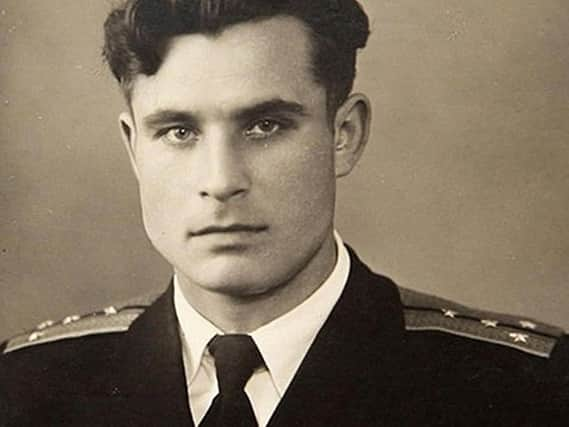Nuclear war was averted thanks to Petrov's nerves of steel '“Â Steve Canavan


I retorted that she has Saturday to do completely as she pleases, but this didn't appease her.
I reluctantly agreed Mrs C may have a point and have begun staying in a bit more. The problem with that, though, is it's quite boring at home. A typical evening consists of Mrs C changing into her pyjamas at 7pm, then announcing at 9.30pm she's tired and going to bed.
Advertisement
Hide AdAdvertisement
Hide AdTo pass the time I've started reading a book about the history of the Cold War.
I won't lie, it's not a page-turner. However, it contains a fascinating section about a bloke called Stanislav Yevgrafovich Petrov, to whom we owe a huge debt of gratitude. If it wasn't for him, you see, many of us might not be here.
On September 26, 1983, there would have been '“ had Mr Petrov been the nervous type '“ a catastrophic war between America and the Soviet Union. Yet this one single person, as bizarre as it sounds, prevented the human race '“ or at least a large proportion of it '“ being wiped out.
The early 1980s was a period when relations between Russia and America were at their worst since the Cuban Missile Crisis at the start of the 1960s.
Advertisement
Hide AdAdvertisement
Hide AdRonald Reagan was in the White House, the Soviet leader was Yuri Andropov, and both were convinced the other was about to launch a deadly attack.
It was against that backdrop that Mr Petrov sat in a bunker near Moscow monitoring the Soviet Union's early warning satellite network ready to notify his superiors of any impending nuclear strike.
The deal was that if Mr Petrov phoned and said the Americans had fired a missile, the Soviets would immediately launch a nuclear counter-attack.
One can only imagine Petrov's surprise, when, half-an-hour past midnight, as he was stifling a yawn and perhaps contemplating a vodka or two at the end of his shift, the bunker's computers reported a nuclear missile was heading towards the Soviet Union.
Advertisement
Hide AdAdvertisement
Hide AdPetrov '“ who, I assume, was a man of a remarkably calm nature '“ decided this was a computer error. As far as I can make out, he came to this decision because '˜it felt a bit odd'.
It seemed, said Petrov, that '˜a first-strike was likely to involve hundreds of simultaneous missile launches'Â in order to prevent the Soviets being able to counter-attack. He was also worried about the satellite system's reliability.
A short while later the computers identified four more missiles as '˜in the air and heading towards Moscow'.
Petrov again concluded it was a false alarm, despite having no other source of information to confirm his suspicions.
Advertisement
Hide AdAdvertisement
Hide AdThankfully for him and millions of folk around the world, he was right, and it was later determined the false alarm had been caused by '˜a rare alignment of sunlight on high-altitude clouds and the satellite'.Â
What a guy.
Alas, after initially being praised for calm actions that averted the end of mankind, Petrov was reprimanded for '˜improper filing of paperwork', the powers-that-be allegedly furious he hadn't told them about what could have been a potential devastating attack.
To this day it is considered the closest the Soviet Union and the US ever came to nuclear war.
Mr Petrov was ushered into early retirement and he later suffered a breakdown.
Advertisement
Hide AdAdvertisement
Hide AdJustice, of sorts, was done five years ago, when Petrov was honoured by the UN with the Dresden Prize '“ complete with a cheque for (a measly) £21,000 '“ for his actions in averting a nuclear war.